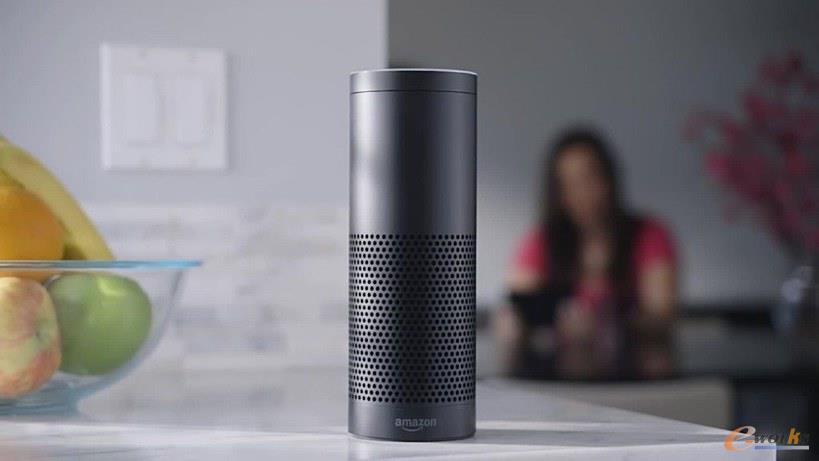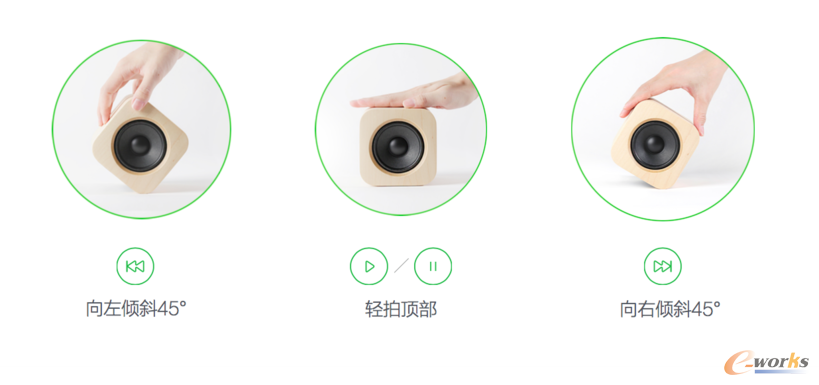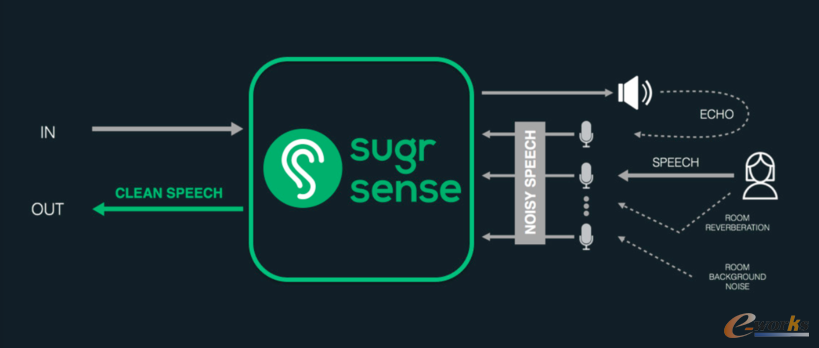OFweek smart home network communications smart speaker does not like a smart phone like every household needs products, what do Chinese users really need? After the domestic Internet companies are gearing up, how should smart home terminals be shaped? These are questions that are worth thinking about. Chinese users' perceptions of smart phones and smart speakers seem to be in two dimensions. On the one hand, in just a few short years, no matter if it is the scale of the users of smart phones or the level of manufacturing, China has reached the first-line standard. We can even proudly say that there are a large number of innovations based on the mobile Internet platform in the country, even the ocean. The other side of Silicon Valley has never been. But on the other hand, the category of smart speakers has not developed at home like Amazon Echo. For domestic users, this category is still a tool for a small number of people to experience early adopters, and it does not play as practical as the Echo. Does this seem like a bad thing to understand, is the user not using the habit? However, people do not use habits when they first appear; is there no demand for family? However, voice interaction is indeed more convenient than touch in some scenarios. What is the reason? Smart speakers are not the products that every household needs like smart phones. What do Chinese users really need? After the domestic Internet companies are gearing up, how should smart home terminals be shaped? These are all questions worth considering. Find a "key" and open a family Being able to solve a specific problem with realism is the first step to product success. This is particularly evident on Amazon Echo. In 2014, as everyone knows, it was the year of Echo's release. This is the first year of intelligent speaker development that everyone can remember. But many people may have forgotten another big event that happened this year. That is, Google spends 3.2 billion dollars. The dollar acquired Nest, the famous smart home brand. Nest's full name, Nest Labs, is a smart home company whose founder was former Apple engineer Tony Fadale, known as the "father of iPod." Since its establishment in 2010, it has become a star of attention in the US technology industry with the extremely well-designed intelligent thermostat Nest Learning Thermostat. This product can add intelligent temperature adjustment function to the home air conditioner without changing the traditional home appliances, and it also has self-learning ability. As long as the user manually adjusts the temperature during the first week of use, the thermostat can then obtain and analyze this data, and then perform intelligent temperature control. It can be said that Nest has actually built a smart home terminal device for American families. At that time, even though most home appliances have not been intelligent, people have already had a first experience with home smart products. It was also in this year that Echo was born, because it was able to connect and control Nest's capabilities with voice, and it immediately gave people the surprise of “voice control air-conditioning temperatureâ€. Due to the American house design and the habits of using home appliances, in fact, voice-controlled air conditioners, electric lights, and other devices are more time- and labor-saving than finding and controlling the switches themselves. Therefore, Echo has allowed people to understand them from the outset. From the convenience brought by Echo to family life, it actually solves a very difficult problem: How to find greater advantages than traditional interactions in people's family scenes? This, after the emergence of smart phones, did not solve the problem, so after the emergence of Echo, this problem has an answer, you can more easily control the appliances through voice, even if they are not smart products. Echo's other weapon to open the family is music. Americans like to listen to music. The service of audio content has always existed. In the family, listening to music at any time is an important requirement. This point, even before the emergence of smart speakers also exist. Statista previously conducted research on the use of smart speakers by US consumers. According to its report, the three most common actions users perform on smart speakers are "common problems" (60%), "search weather" (57%) and " Listen to songs (54%). It can be seen that the demand for music services in U.S. users is an important reason why Echo can become a family essential. In addition, according to the news released by the research organization Voicebot, as of July 2, 2017, Echo's skills have exceeded 15,000, but from the point of view of the number of users, a large number of applications are at no one's interest level. Among the ten skills that focus on the head, five skills are related to the content of the voice, such as "playing a hypnotic or relaxing sound," "playing a short bedtime story," or even "thunder". These sound requirements At least one other thing that can be seen is that smart speakers play a big role in the bedroom. Smart home habits + music services, these two cores create a key to open the American family, Echo is welcome in the United States can understand. American Key and Chinese Door In the United States, these two important reasons for Echo’s development have been awkward after it was left untouched in China. First of all, smart home in China, the concept of acceptance is not as high as the United States, although in the past two years, people have begun to use a variety of smart products, but still can not escape fragmentation, splitting trend. Obviously, you can't control the other home appliances on the Mijia app, and you can't use Ali's smart speakers to control Mijia products. The reason for this split may be that the intelligent process of the domestic home appliance industry was not as fast as it originally was, but the more important point is that the temptation to build a closed ecological circle is too great, whether it is BAT or Jingdong. For Amazon's eco-enclosed ecosystem built with Echo, although it is longing for a long-term goal, it is still necessary to make further attempts. At this year's node, these companies hope to change our living habits again through technology. In addition, Americans like to have different ways of family music and China. "In China and the United States, music consumption is not the same. Americans listen to music like streaming media. China is on-demand. Therefore, the demand for voice in the United States is not particularly high. Chinese consumers will be very high, once or twice. After the recognition fails, everyone may be disappointed and useless.†Song Xiaopeng, founder and CEO of Shenzhen Mitang Technology, shared some of his thoughts with Geek Park. “Americans have the habit of paying for music and they are willing to pay for music content. It took a long time in China to gradually develop understanding." Mitang Technology began exploring the possibilities of speaker interaction as early as 2014. In the year of Echo's birth, Mitang Technology developed the interactive speaker Sugr Cube with unique interaction, not only adopting a minimalist design in appearance. , Try to avoid complexity, the same creativity in the interaction, through the touch and tilt way, so that people enjoy the music in the most touchable way, Sugr Cube also won the Kickstarter Editor's Choice Award. As China's first Spotify-certified company, in 2016, Mitang Technology also reached an agreement with Amazon to become an Amazon certified Alexa system solution provider. They developed a complete set of software and hardware integrated voice interactive product solutions. Sense, and reached a strategic cooperation with Tencent this year. For years of exploration in audio interaction and product experience, Song Shaopeng believes that in China, speakers need to be used as smart terminals to control everything around them. What is the interaction scenario? How large is the demand and how does the road go? In practice, explore: "The family environment in China and the United States is very different. The house of the Americans is large. It is convenient to manually control the switch without voice, but in China, the house is not so big. It is not bothersome to manually control the switch. The kitchen is like this, the American kitchen. Cooking is not as noisy as in China, and it is more natural to interact with voice in the kitchen." In his opinion, on the battlefield in China, it may be necessary to differentiate themselves from Amazon Echo by successfully educating the market and nurturing people's habits. It is a good way to infiltrate the problems that the Chinese people will encounter in a localized way. So we can see that the market has started different ways of exploring: whether it is shopping, paying calls to meet the needs of the Tmall Elf X1, or from the content of the depth of the combination of Xiaoya AI speaker, are all domestic attempts . These different subdivision scenarios and the ability to allow speakers to "understand" the user and then feed back from different paths is the ability to open the door to "Let everything hear". This, perhaps, is that smart speakers can really Domestic ability to land. We should find our own key "Dream A Dream" has a plot that impresses me so far. After the hero, Daxiong, always throws things away and forgets to bring things together, the Doraemon A dream finds a magical spray from his many props, which can make her around Objects have the ability to speak. So, when you forget where something is, these items will automatically respond to you. In my opinion, this is the initial portrayal of the smart speaker. It is always around you and can meet your needs when you need it. So, taking a look at this year's smart speaker boom, we may not only have a more important understanding, that is, under the domestic environment, the function of the speaker does not have to be grand, basic functions such as setting alarm clocks, calendar reminders, Check the weather above these. Try to more user-oriented features. Once the subdivision function is established, people will probably become accustomed to smart speaker products. It's like listening to a novel and listening to a story. What you need is a speaker that focuses on reading content. What you need is shopping, and you need a speaker that focuses more on shopping. The first step in "everything we hear" is to avoid the vaunted but ambiguous function of letting people understand what the speaker can do and what not to do, perhaps with more intuitive results. Pad Mounted Transformer,Wind Power Substation,Step-Up Wind Power Sustation,Step Up Transformer Hangzhou Qiantang River Electric Group Co., Ltd.(QRE) , https://www.qretransformer.com



